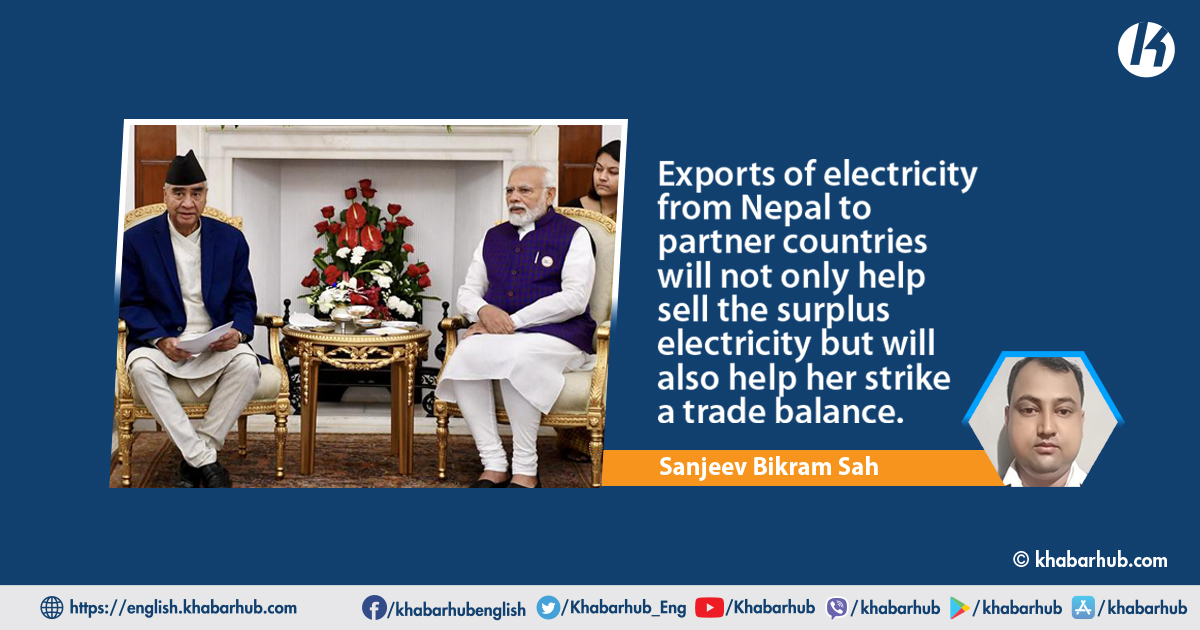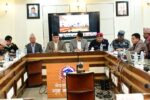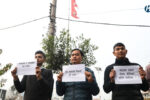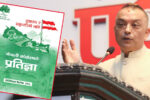After assuming office in July 2021, Nepalese PM Sher Bahadur Deuba visited India on his first official trip (April 1-3).
Faced with impending elections in the country, some political leaders in Nepal raised eyebrows questioning the timing of the visit. Nonetheless, it turned out to be significant from the Nepalese perspective.
Nepal has always been important for India given its overall strategic interests in the region.
Being the first visit by a Nepali PM in three years and in the backdrop of the map controversy, it not only marked a warming up of relations but also, bolstered bilateral relations to the next level.
PM Modi described Nepalese PM Deuba as an old friend of India and praised him for his role in developing relations between the two countries.
Deuba lauded India’s help to Nepal in combating the pandemic, wherein Nepal received vaccines, medicine, medical equipment and logistics to fight the pandemic.
Pandemic has caused economic woes all over, Nepal being no exception. Its economy contracted by 1.9% in FY 2020.
Further, Bangladesh has an understanding with Nepal to buy 500 Mega Watts of electricity, and, has also shown interest in developing hydropower projects in Nepal. In this regard, both the countries have agreed to bring India on board to conduct electricity trade.
Although there are green shoots of recovery, its economy needs a bigger push to get it back on track. World Bank has projected a moderate growth rate of 3.9% in FY 2022 on the back of a 2.7% rate of growth in FY 2021.
Further, the fiscal situation is less than encouraging with the current account deficit at 3.2% and the estimated fiscal deficit at 8% of GDP.
The situation has further been exacerbated by the Chinese embargo on the movement of goods, adding inflationary pressure on the economy.
The visit assumed importance in this backdrop. The two countries signed several agreements on connectivity, investment and trade, and, sought to deepen business ties.
Both leaders flagged off the Kurtha-Jayanagar cross-border passenger train services and also jointly inaugurated the Solu Corridor 132 KV Power Transmission Line and Substation in Nepal built under the government of India’s line of credit.
The two leaders also launched India’s RuPay digital card for use in Nepal. With the launch of the RuPay card, Nepal has become the fourth country, after Bhutan, Singapore and UAE, to benefit from the digitization of monetary transactions with India.
“Introduction of RuPay card will add a new chapter to our financial connectivity”, said Indian PM Modi in his statement. The introduction of a digital payment facility is expected to open new vistas for cooperation in financial connectivity and facilitate bilateral tourist flows as well as strengthen people-to-people linkages.
Nepalese officials familiar with the project said that the launch of the card in Nepal will not only forge a new path to financial convenience but will also uplift Nepal’s ecosystem of payment capabilities.
In addition, the two leaders also came up with a vision statement for cooperation in the power and energy sector.
As per the statement, the two sides agreed to strengthen cooperation on the joint development of power generation projects in Nepal, development of cross-border transmission infrastructure and bi-directional power trade with appropriate access to electricity markets in both countries based on mutual benefit.
Further, the statement talks about expanding cooperation in the power sector to include their partner countries under the Bangladesh, Bhutan, India and Nepal (BBIN) framework, subject to mutually agreed terms and conditions between the parties involved.
The Nepalese officials are excited about cooperation in the power sector and opine that honest Implementation of the vision statement will help create a sub-regional market for power and Nepal may benefit significantly as an exporter of electricity.
According to an ADB report on hydropower development and economic growth in Nepal, electricity generation capacity in Nepal is increasing rapidly.
Officials are excited about its prospects and are of the view that once the sub-regional exchange becomes a reality, Nepal will emerge as a big player in the field of power trading.
Based on the availability of water resources, Nepal’s technical potential hydropower is estimated to be 83 GW, out of these 42 GW is considered economically viable.
Further, Bangladesh has an understanding with Nepal to buy 500 Mega Watts of electricity, and, has also shown interest in developing hydropower projects in Nepal. In this regard, both the countries have agreed to bring India on board to conduct electricity trade.
“The importance of this document for Nepal is that its implementation will ensure a large market for Nepal’s power industry, which the country has been searching for”, said Kul Man Ghising, Managing Director of Nepal Electricity Authority.
The vision statement has paved the way for the creation of a sub-regional market and will help Nepal get more investments.
Officials are excited about its prospects and are of the view that once the sub-regional exchange becomes a reality, Nepal will emerge as a big player in the field of power trading.
Exports of electricity from Nepal to partner countries will not only help sell the surplus electricity but will also help her strike a trade balance.
The economic benefits accruing through the power exports will help the country to transition from a low income to a lower-middle-income country.









Comment